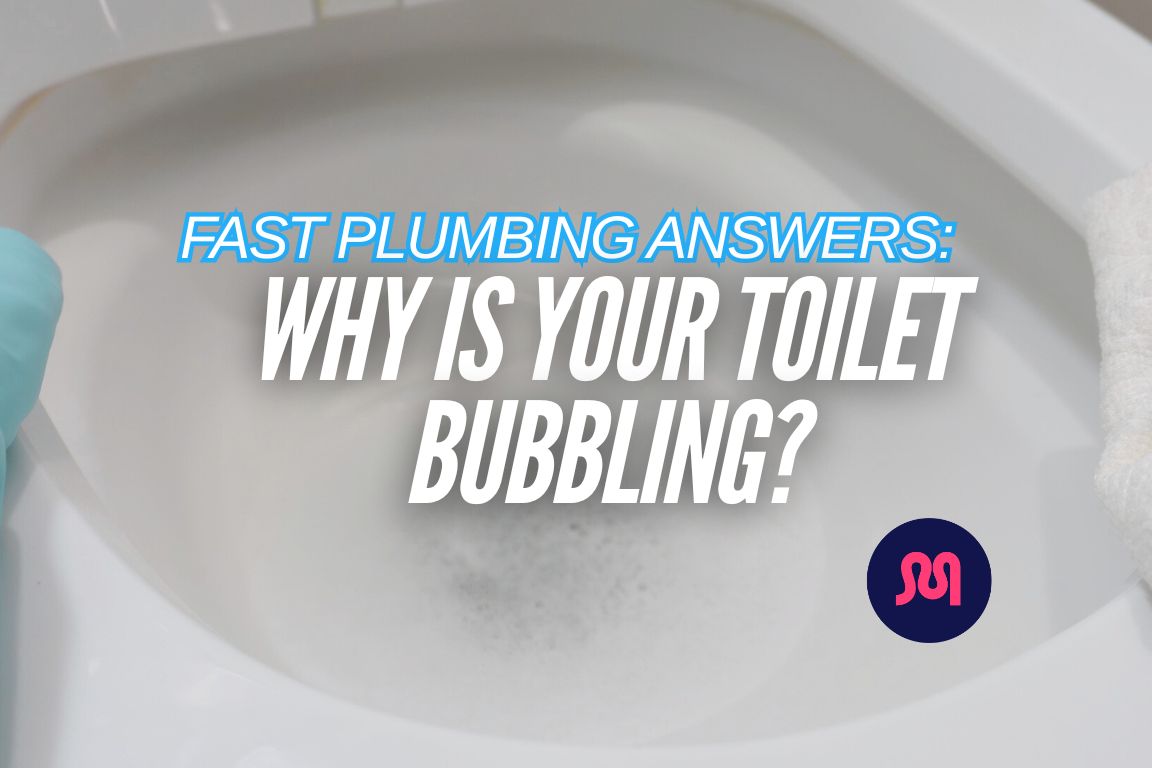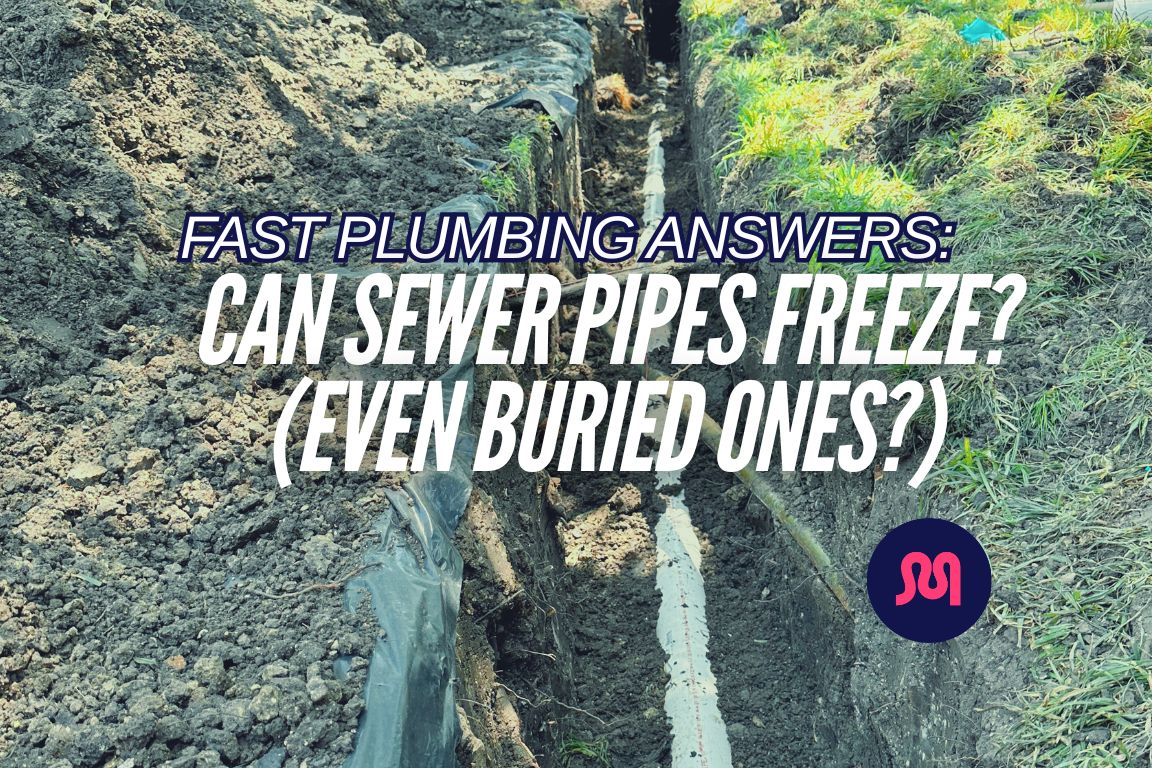Hydrostatic Testing Dallas: A Comprehensive Homeowner's Guide
.webp)
table of contents
table of contents
Sewer line leaks can cause foundation issues, damage concrete driveways, and emit sewage into your yard. Hydrostatic testing is a way to check your home's pipes for leaks or breaks.
At Mother, we've performed thousands of hydrostatic tests. From simple leak locations, to full sewer line connections. We'll show you ways to perform them safely and quickly.
{{hydrostatic-testing="/services/hydrostatic-testing"}}
What Is Hydrostatic Testing?
Hydrostatic tests identify leaks in your sewer line. Because sewage is an environmental risk, sewer line connections require hydrostatic tests. As a diagnostic, they're used to find leaks. Hydrostatic testing only tells you if a leak exists, it doesn’t pinpoint the exact location.
Note: Gas lines have their own specialized tests, and water supply lines typically require a different pressure test.
How Hydrostatic Testing Works?
The name is the test - “hydro” means water and “static” is the kind of pressure the system holds. Plumbers plug your main sewer line then fill it with water to see if the water level holds steady. If the water level drops, it indicates a leak somewhere in the line. This process is non-invasive and doesn’t use high pressure, making it safe for older plumbing systems.
Key Steps in a Hydrostatic Test:
- Isolate the System: Plug the pipes to isolate the area being tested. Typically at the cleanout
- Fill with Water: Add water until the system reaches slab level.
- Monitor for Leaks: Check the water level over a set period to see if it drops.
- Evaluate Results: Identify and address any leaks or weak points found.
"Hydrostatic Testing" Might Not Be the Best Term
Hydrostatic testing is the most common term, but it may not be the best. Plumbing professionals like Roger Wakefield point out that the phrase can be misunderstood by homeowners. Here’s why:
- Technical Imprecision: Most industries use hydrostatic to refer to pressurized tests. However, the method for residential sewer lines involves static, unpressurized which causes confusion about the procedure.
- Homeowner Concerns: Many homeowners associate the term with high pressure that can damage their plumbing systems. This perception, though not always accurate, can lead to unnecessary anxiety about the process.
- Alternative Language: Some plumbers advocate for terms like "static pressure assessment" or "sewer leak evaluation," which better describe the method without evoking concerns about potential pipe damage.
- Regional Variations: Dallas code requires hydrostatic tests, but it's also common for real estate deals. Using other terms can help bridge the gap between technical jargon and homeowner understanding.
Code: When do you need to perform a test in Dallas?
Hydrostatic tests are only required for code compliance, typically when a sewer system is first installed, or replaced. They’re also a critical first step in leak detection for sewer lines before pinpointing the precise location.
City Code Compliance:
- According to the International Plumbing Code (IPC), sections 312.6 and 312.7, Dallas homeowners may need hydrostatic testing when:
- Connecting to public sewer systems.
- Conducting renovations or repairs that involve plumbing systems.
- Finalizing inspections for newly constructed homes.
Suspected Sewer Line Issues:
- Signs that you might need a test include:
- Frequent sewer backups.
- Wet spots in your yard without a clear cause.
- Unexplained high water bills.
Buying or Selling a Home:
- Many buyers request hydrostatic testing to ensure plumbing integrity before finalizing a purchase.
Foundation Work:
- Hydrostatic testing may be required after foundation lifts, adding piers, or other structural repairs to ensure it didn't break your plumbing lines.
Do You Need Permits for Hydrostatic Testing in Dallas?
We get this question a lot, and it’s a common misunderstanding. Sewer tests are often one step of the permitting process. Especially if sewer lines are added or extended.
{{main-sewage-line-replacement-best-texas-guide="/blogs/main-sewage-line-replacement-best-texas-guide"}}
What Are the Types of Hydrostatic Tests?
Gravity Sewer Test:
- Involves filling the sewer lines with water and observing for leaks over 15 minutes. This test ensures that sewer lines meet IPC Section 312.6 standards.
Forced Sewer Test:
- Tests the building sewer by applying a pressure of 5 psi greater than the pump’s rating for 15 minutes. Ideal for systems connected to a pump, as specified in IPC Section 312.7.
Shower Liner Test:
- Ensures watertightness of shower floors and receptors by filling them with water to a depth of at least two inches. This test follows IPC Section 312.9.
Water supply system tests are technically performed under higher pressure and are used for fresh water lines.
How Long Does Hydrostatic Testing Take?
The duration depends on the type of system and its condition. At a minimum your sewer needs to hold water for 15 minutes.
Preparation, setup, and clean-up will add additional time. Expect 60-75 minutes for the entire process.
How Much Does Hydrostatic Testing Cost in Dallas?
Most plumbers offer a flat rate price for sewer tests.
Mother Gravity Sewer Test: $477
Texas Regional Average: $625
We pull regional pricing data from other plumbers in our region that share pricing
Ready to book your test?
{{hydrostatic-testing="/services/hydrostatic-testing"}}
Benefits of Hydrostatic Testing
Protect Your Home:
- Identify leaks before they cause severe water damage or foundation problems.
Maintain Plumbing Integrity:
- Detect weak points in pipes to prevent future failures.
Ensure Compliance:
- Meet Dallas’s building and plumbing codes during renovations or inspections.
Provide Peace of Mind:
- Guarantee that your plumbing system operates as intended.
What To Expect During a Hydrostatic Sewer Test?
1. Pre-Test Preparations: Your plumber will identify testing zones and install plugs or isolation devices.
2. Performing the Test: Water fills the system to the required pressure. Monitoring begins.
3. Post-Test Assessment: If the water level decreases there is a leak in the system. Your plumber will locate and recommend fixes for any leaks or issues.
4. Repairs if Necessary: Address problems promptly to avoid further complications.
Already performed a hydrostatic test and looking for repairs?
{{sewer-line-repair="/services/sewer-line-repair"}}
How to Choose a Plumber for Hydrostatic Testing in Dallas
Key Factors:
- Licensing and Certification: Verify state licenses and certifications.
- Experience: Look for plumbers familiar with Dallas codes and regulations.
- Reputation: Check online reviews and ask for references.
- Pricing: Request a detailed quote that includes permits and follow-up repairs.
Questions to Ask:
- Have you worked with systems similar to mine?
- Do you handle city permits?
- What is included in your pricing?
Common Homeowner Questions About Hydrostatic Testing
Do Hydrostatic Tests Damage Plumbing?
When performed correctly, hydrostatic tests are safe. A professional plumber will avoid over-pressurizing systems to prevent unnecessary stress on pipes.
What Happens if My Plumbing Fails the Test?
If leaks or weaknesses are identified, your plumber will:
- Pinpoint the exact issue.
- Recommend repairs or replacements.
- Retest the system after fixes.
Are Hydrostatic Tests Required for Insurance Claims?
In some cases, insurers require testing to verify plumbing failures for coverage eligibility.
Final Tips for Homeowners
- Schedule Regular Inspections: Prevent costly repairs by catching issues early.
- Know Your Plumbing System: Familiarize yourself with your home’s layout and materials.
- Hire Professionals: Trust only licensed and experienced plumbers for hydrostatic tests.
Hydrostatic testing in Dallas ensures your plumbing system’s safety and reliability. By understanding the process, you can make informed decisions and protect your home from unexpected issues. For further information, consult the 2021 International Plumbing Code or speak with a licensed Dallas plumber.
{{hydrostatic-testing="/services/hydrostatic-testing"}}
-(28).webp)



